Recently in main Category
The Rifftides staff discovered, by chance, that an essential element in a two-and-a-half-year-old entry about Dick Wellstood and two other pianists had suffered the slings and arrows of outrageous YouTube fortune. The video of Wellstood playing was removed by whoever posted it. We managed to find an even better one, so here is the reconstituted piece, including video. Call it a Rifftides encore or golden oldie. This first ran on August 8, 2008.
_____________________________________________________________________
Dick Wellstood has been on my mind. Maybe it's because I heard Dave Frishberg play the piano the other night at The Seasons. Frishberg was in concert singing his inimitable songs and accompanying himself, but he opened up plenty of space for piano solos. Before he became famous for performing his songs, Frishberg worked with Zoot Sims, Al Cohn, Ben Webster, Jack Sheldon and Carmen McRae, among other demanding leaders. He was, and is, a versatile and idiosyncratic pianist who wraps several jazz eras into a style of his own. A couple of times on Saturday night, he pulled off stride passages that Wellstood would have appreciated.
In the mid-1940s when Wellstood was a young man working toward a career as a pianist, he was under the spell of Joe Sullivan (pictured). Sullivan (1906-1971) came from Chicago and
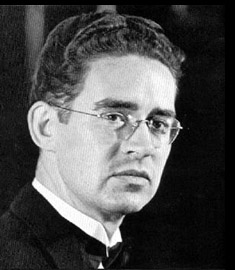 began recording in 1927. By 1933, he was Bing Crosby's accompanist and established as one of the brightest of the young pianists influenced by Earl Hines, James P. Johnson and Fats Waller. He in turn influenced Wellstood, who had cards printed that read, "Perhaps you can help me to meet Joe Sullivan. My name is Dick Wellstood." He distributed the cards in musicians' hangouts. Finally, the cornetist Muggsy Spanier told Wellstood where Sullivan lived. According to clarinetist Kenny Davern's account of the meeting, quoted in Edward N. Meyer's Giant Strides: The Legacy of Dick Wellstood, the pianist knocked on Sullivan's apartment door well after midnight.
began recording in 1927. By 1933, he was Bing Crosby's accompanist and established as one of the brightest of the young pianists influenced by Earl Hines, James P. Johnson and Fats Waller. He in turn influenced Wellstood, who had cards printed that read, "Perhaps you can help me to meet Joe Sullivan. My name is Dick Wellstood." He distributed the cards in musicians' hangouts. Finally, the cornetist Muggsy Spanier told Wellstood where Sullivan lived. According to clarinetist Kenny Davern's account of the meeting, quoted in Edward N. Meyer's Giant Strides: The Legacy of Dick Wellstood, the pianist knocked on Sullivan's apartment door well after midnight.
Soon this disheveled figure in slippers and a bathrobe comes shuffling through. Joe opens the door and says, "Yeah?" Dick says, "Hi, my name is Dick Wellstood and Muggsy Spanier said to say hello." And Joe Sullivan said, "Tell Muggsy Spanier to go f___ himself," and slammed the door right in Dick's face.
Nonetheless, Wellstood remained a steadfast admirer of Sullivan. Here is one reason, Sullivan's 1933 recording of "Gin Mill Blues."
There is little video of Wellstood performing, but this clip from a concert in Germany in 1982, five years before he died, catches him in full stride, concentration and swing.
That brought response from Dave Frishberg and another old pal of Wellstood and triggered further reminiscence about my friendship with Dick. To see that item, click here.
I'm still tucking in the frayed ends of daily life after extended duty in the trenches of extracurricular writing. Soon, there will be a new batch of Doug's Picks as the blogging routine returns to normal, whatever that is.
I am told that the first rule of survival in the weblog game is to keep the blog fresh. So—to give you useful information and avoid turning this into a mere video disc jockey operation—here is a cross-generational performance of Bud Powell's "Webb City." The older generation is represented by Phil Woods, the man in the hat, the younger by Grace Kelly, the woman in the magenta dress, and her band: Jason Palmer, trumpet; Doug Johnson, piano; Evan Gregor, bass; and Jordan Perison, drums. "Webb City" became famous in bebop circles because of a brilliant 1946 recording by Fats Navarro. Powell named the tune not after the southwest Missouri town of 10,000 but for Freddie Webster, one of the heros of pre-bop trumpet. Thanks to Ira Gitler, the fount of all bebop knowledge, for that nugget. There——wasn't that useful?
This performance took place recently at Sculler's, a jazz emporium in Boston, Massachusetts, a large city on the east coast of the United States
"Webb City" is not on Ms. Kelly's new CD, Man With the Hat, but Mr. Woods is. Here's a sign of changing times in the record business and in earning prospects for musicians: the album sells on Amazon as a digital download for $6.93, as a CD for $24.72 plus shipping. There are still lots of diehard CD lovers, but remaining one is not getting easier.
Today at the White House, President Obama will present the National Medal of Arts to ten creative Americans, including Sonny Rollins and Quincy Jones. From the announcement by the National Endowment for the Arts, here is the complete list of 2010 recipients:
Robert Brustein, theatrical critic, producer, playwright, educator; Van Cliburn, pianist, music educator; Mark di Suvero, sculptor; Donald Hall, poet; Quincy Jones, musician, music producer; Harper Lee, author; Sonny Rollins, jazz musician; Meryl Streep, actress; James Taylor, singer, songwriter; Jacob's Pillow Dance Festival. (Lee and Streep are unable to attend the ceremony.)
"I'm very happy that jazz, the greatest American music, is being recognized through this honor, and I'm grateful to accept this award on behalf of the gods of our music," Rollins said of the award.
Here is Sonny, feeling frisky.
The Rollins band included Masuo and Bobby Broom, guitars; Lincoln Goines, bass; and Tommy Campbell, drums.
Now that the NEA has evidently decided to dump its Jazz Masters honors, it is good to see the Medal of Arts program include one of the major improvisers of our time.
In my Modern Jazz Quartet project, I'm roundin' third and headin' home (for mystified readers in Brussels or Bangkok, that's a baseball metaphor). I hope to be back to more or less regular blogging early this week. In the next few days, the Rifftides staff will have news about a new look for the blog. In the meantime, why not share the MJQ wealth? In my research, I ran across this video made in London in 1982. Sigmund Romberg and the MJQ live!
What project? Go here.
The fine jazz photographer Ron Hudson died at his Seattle home on Tuesday. He was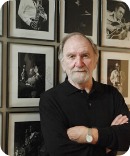 71. For more than 30 years, Hudson captured memorable images of Ella Fitzgerald, Miles Davis, Woody Herman, Milt Jackson, Bud Shank and dozens more of the leading musicians of his time. He worked exclusively in black and white and won admiration for the clarity of his prints. As noted in this Rifftides review of a book of his collected photographs, Hudson had the gift of anticipating a crucial stage in the act of improvisation and releasing his shutter at precisely the right millisecond. Most of his pictures were intimate action portraits, but he sometimes caught large groups in dramatic moments, as in this panoramic shot of a convocation of bassists a few years ago in a tribute to Ray Brown at the Centrum Port Townsend Jazz Festival.
71. For more than 30 years, Hudson captured memorable images of Ella Fitzgerald, Miles Davis, Woody Herman, Milt Jackson, Bud Shank and dozens more of the leading musicians of his time. He worked exclusively in black and white and won admiration for the clarity of his prints. As noted in this Rifftides review of a book of his collected photographs, Hudson had the gift of anticipating a crucial stage in the act of improvisation and releasing his shutter at precisely the right millisecond. Most of his pictures were intimate action portraits, but he sometimes caught large groups in dramatic moments, as in this panoramic shot of a convocation of bassists a few years ago in a tribute to Ray Brown at the Centrum Port Townsend Jazz Festival.
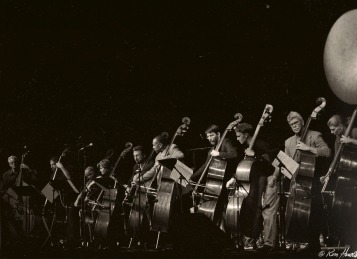
A 2006 Katy Bourne profile of the photographer on All About Jazz includes several of Hudson's photographs.
Many listeners know that Arturo O'Farrill is a talented New York pianist who leads Jazz at Lincoln Center's Afro-Latin Jazz Orchestra. He has been a considerable force in Latin 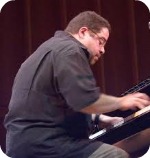 music in the US for three decades. Fewer may be aware that he is the son of Chico O'Farrill, a Cuban of Irish origin who was one of the most distinctive and versatile composers and arrangers in American jazz. In this week's Village Voice, Larry Blumenfeld tells the father's and son's stories in the context of Arturo's emotional trip to Havana with his mother and sons. He made the trip with full knowledge that anti-Castro Cubans in the US, including his friend Paquito D'Rivera, feel that any recognition of or cooperation with Cuba will be used by the Castro government as a propaganda weapon. From Blumenfeld's piece:
music in the US for three decades. Fewer may be aware that he is the son of Chico O'Farrill, a Cuban of Irish origin who was one of the most distinctive and versatile composers and arrangers in American jazz. In this week's Village Voice, Larry Blumenfeld tells the father's and son's stories in the context of Arturo's emotional trip to Havana with his mother and sons. He made the trip with full knowledge that anti-Castro Cubans in the US, including his friend Paquito D'Rivera, feel that any recognition of or cooperation with Cuba will be used by the Castro government as a propaganda weapon. From Blumenfeld's piece:
Arturo squints into the sun and explains that, late in his life, after his father's career had revived, Chico was ready to go back and play his music. He wanted to return. "But then his health took a really bad turn," Arturo says. "It became impossible. So I'm completing that trip for him." But this isn't just a personal matter, he explains. "I'm not interested in making light of the fact that Cuban politics is rife with corruption and political imprisonment. I'm also not delicate about communicating that America is a nation built on tremendous bloodshed and continuous imperialism. I don't think those are things that should be run from or ignored. They're just historical facts. Anybody who's half-awake in the world will understand the brutality of both sides. Music courses through and above all that. We need to connect, not disconnect."
Blumenfeld's lengthy article about O'Farrill's visit to his father's homeland has the flavor of a well-reported documentary. To read it, go here.
Blogging is going on the back burner—or maybe a side burner—for a few days while I wrap up an assignment. I am writing the essay and program notes for a seven-CD Mosaic box of the Modern Jazz Quartet's Atlantic studio recordings from 1956 to 1964. It involves a lot of listening, a lot of interviewing, a lot of work and an enormous amount of pleasure. This video from an MJQ concert in Holland in 1982 underlines the point about pleasure. The piece includes a splendid John Lewis solo, Connie Kay's irresistible time keeping and at the end, following Milt Jackson's dazzling vibes passage, something even rarer than the Percy Heath bass solo—what may be a smile from Jackson. Mr. Lewis announces the tune.
Percy Heath's work before and after that solo brings to mind this Rifftides archive item about the importance of the bass line to understanding the nature of a jazz performance. The first installment of a six-part series, it contains a bonus video from the MJQ and another solo by Percy. I'm told that the Mosaic box will be out in late spring or early summer.
I should have alerted you earlier to another web concert by the excellent Seattle Repertory Jazz Orchestra. It will be broadcast beginning at 1 pm (PST) today. Here are the details in an announcement from the SRJO.
Tune in to hear highlights of the SRJO's "Jazz Goes To the Movies" (recorded in November 2011) on the next Jazz Northwest on KPLU 88.5FM - KPLU. It's a concert of movie themes and incidental music played by the Seattle Repertory Jazz Orchestra. The concert, directed by Clarence Acox and Michael Brockman is part of the annual series presented by the SRJO. Mission Impossible, The Pink Panther, Days of Wine and Roses and other jazz from the movies is included...we'll even have some film clips (a rarity for radio!).Sunday, February 20 at 1 PM Pacific on Jazz Northwest on 88-5, KPLU and streamed live at kplu.org. Jazz Northwest is recorded and produced by Jim Wilke exclusively for KPLU. The program is also available as a podcast at kplu.org.
Sorry for the short notice; I'm buried in a Modern Jazz Quartet project that I'll tell you about later.
Bill Monroe died yesterday at the age of 90. You may remember him as the moderator of NBC's Meet The Press. He was noted for the toughness and fairness of his questioning in the years when that Sunday morning program influenced millions of Americans'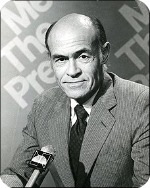 thinking about government and politics.
thinking about government and politics.
I remember him as the man who built the news department of WDSU-TV in New Orleans into a pioneer in early television news and a moderating force when the south was riven by the hatreds and tensions that accompanied the civil rights movement. By the time I joined WDSU in the 1960s, Monroe had moved on to be the Washington, DC, bureau chief for NBC, but WDSU's news operation continued in the tradition of integrity and professionalism that he established. When he came back to visit, I was privileged to get to know him.
In later years when I moved from reporting and anchoring to running news departments, Bill's example and occasional advice helped guide me. In this clip from the Emmy archives, he talks about one aspect of his early days at WDSU.
For an account of Monroe's career and contributions, see his obituary in The New Orleans Times-Picayune. This is the conclusion of his obituary in today's Washington Post:
Throughout his career, he was critical of the Federal Communications Commission's regulation of broadcast media - a first step, he said, toward abridging the constitutionally guaranteed rights of free speech and free press.
"The effect of government control on broadcast news is to make it bland, to inhibit it, to make it somewhat less courageous, less inclined to initiative than the print media," Mr. Monroe said in a 1980 interview. "The whole regulatory system is a monster that has done the public much more harm than good."
Let us hope that latter-day Bill Monroes—if we are fortunate enough to have some—continue to insist on preservation of that constitutional guarantee
Dave Frishberg will be featured this weekend at one of the main concerts of the Portland Jazz Festival. It's an unusual gig for Frishberg; he frequently plays piano in his adopted 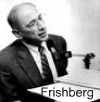 hometown but rarely sings his songs there. In Oregon Music News, Jack Berry opens his piece about Frishberg with a story of the time Frishberg got a startling surprise when he spotted an old friend. Here's a link.
hometown but rarely sings his songs there. In Oregon Music News, Jack Berry opens his piece about Frishberg with a story of the time Frishberg got a startling surprise when he spotted an old friend. Here's a link.
To see the PDX Jazz festival schedule, go here.
AJ Ads
AJ Blogs
AJBlogCentral | rssculture
Terry Teachout on the arts in New York City
Andrew Taylor on the business of arts & culture
rock culture approximately
Laura Collins-Hughes on arts, culture and coverage
Richard Kessler on arts education
Douglas McLennan's blog
Dalouge Smith advocates for the Arts
Art from the American Outback
Chloe Veltman on how culture will save the world
For immediate release: the arts are marketable
No genre is the new genre
David Jays on theatre and dance
Paul Levy measures the Angles
Judith H. Dobrzynski on Culture
John Rockwell on the arts
innovations and impediments in not-for-profit arts
Jan Herman - arts, media & culture with 'tude
dance
Apollinaire Scherr talks about dance
Tobi Tobias on dance et al...
jazz
Howard Mandel's freelance Urban Improvisation
Focus on New Orleans. Jazz and Other Sounds
Doug Ramsey on Jazz and other matters...
media
Jeff Weinstein's Cultural Mixology
Martha Bayles on Film...
classical music
Fresh ideas on building arts communities
Greg Sandow performs a book-in-progress
Harvey Sachs on music, and various digressions
Bruce Brubaker on all things Piano
Kyle Gann on music after the fact
Greg Sandow on the future of Classical Music
Norman Lebrecht on Shifting Sound Worlds
Joe Horowitz on music
publishing
Jerome Weeks on Books
Scott McLemee on books, ideas & trash-culture ephemera
theatre
Wendy Rosenfield: covering drama, onstage and off
visual
Public Art, Public Space
Regina Hackett takes her Art To Go
John Perreault's art diary
Lee Rosenbaum's Cultural Commentary
